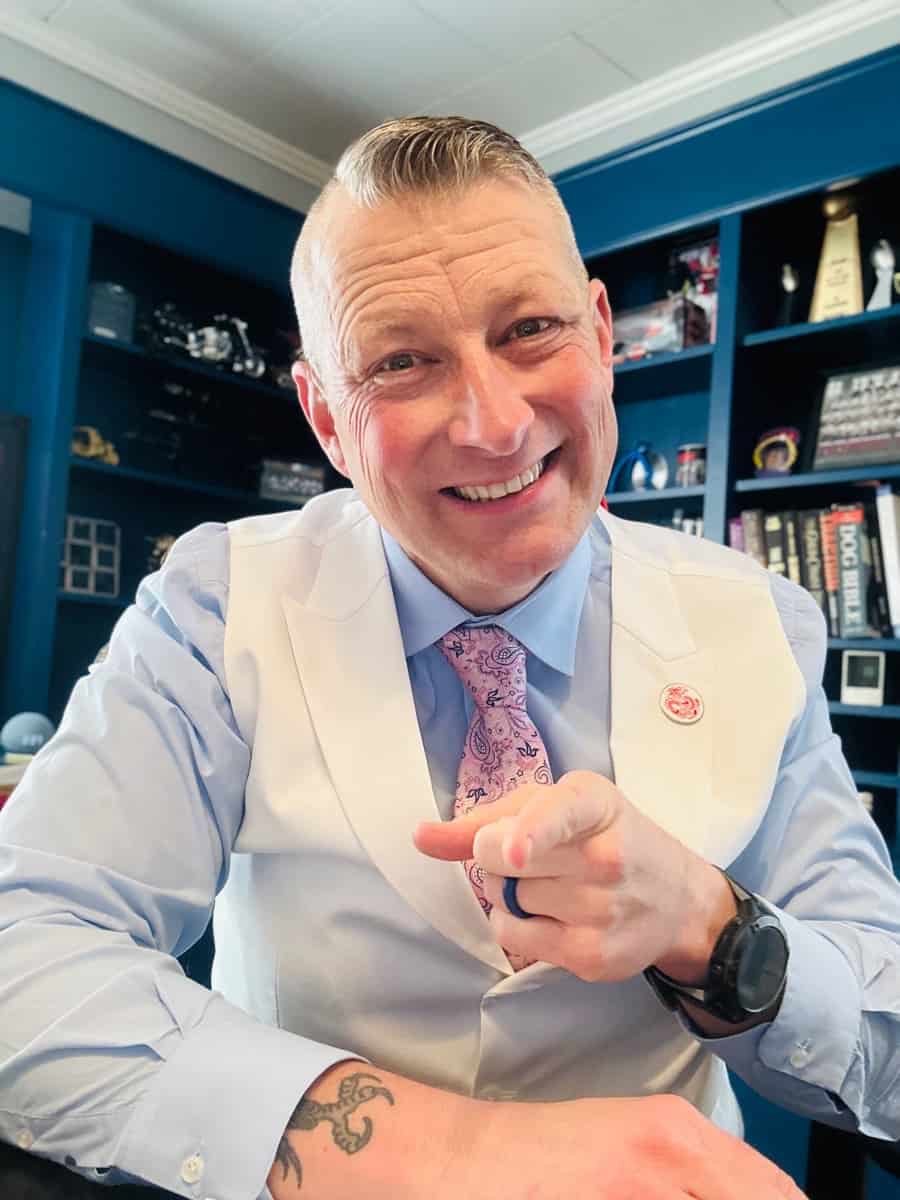Christopher Brooks
Consumers are now evaluating the organizations that they trust based on their responsibilities to their employees and to societies. So, does the leader now need to rethink in terms of their responsibilities to do the right things in the right way?
Do they now have to take into consideration the impact of their actions on society and communities as well as employees and their customers?
Steve Bederman
Well, “improve” is a key piece of our core value. So I have two different perspectives to share with you:
One is that a business built on promise-keeping and then insisting on it all the way through and advertising it and telling people why and how you do it can be an influence.
This article is part of Steve’s interview with Christopher Brooks.
Listen to it here:
Let’s be frank: the world is built on a consumer-based approach to relations. So if in fact, a business like ours – very complicated – can be successful through the investment in keeping the promise versus the investment of making money and then seeing how you keep a promise – there’s a difference. Then we can become marvelous and lead to other competitors needing to do it just to stay relevant.
Well, who gains the input, the value point of that? It’s the society, it’s the consumer, it’s the fact that now consumers over a period of time, leadership coming from one company to another can see that they can hold people accountable to an integrity-based approach to living.
Let’s be honest: over the last 20 years what you have seen through businesses, mega-businesses, fast food restaurants set up to do high volume with very little interaction. you’ve seen a sort acceptance in our children in each-other of mediocrity.
Christopher
So, the leader has quite a responsibility going forward. And I guess that’s where they must work very strongly with the management team to ensure that is echoed through every effort and energy. If organizations are going to have to take a greater stake in society and almost have a civilian charter, a society charter to make things better.
Steve
The true contact center is built upon the idea of client experience. That’s the basis of all communication: for that purpose. So now with companies like us where we provide “omnichannels”, multiple channels in ways that I could be communicating with you, within the context of any way you choose to communicate with me.
That makes you the customer comfortable in their experience. We can now see that companies in an organized and efficient fashion can now begin again to communicate directly with their customers. Using the right technology, with the right vision, and the singular approach to care.
On Millennials in Contact Centers & Communication
Steve:
The millennial group today is not talking, they’re writing. It’s a generation built on an awareness of communication but in a different modus operandi. And that through that they’ve gotten very good at conversation through social networking or through text.
So, we don’t diminish the ones that remove us from voice or video, we make those available. But we also make the others available and then creatively find ways to make that an intimate conversation.
On the Need to Adapt Your Way of Doing Things
Steve:
It’s not only an evolution, it’s a revolution of behavioral change.
So honestly, I want to see classes on it, I want to see more training to leadership, I want to remind leadership that through a wholly new behavior of how you communicate internally and externally, with the internal-external clients, that you can be successful.
But if you refuse and you want to stay in the method that has developed over the last 50 years, it’s not going to survive. And if leadership doesn’t understand it and stays remote from it, those businesses are going to be very mediocre.
On the Customer Experience Approach to Business
Steve:
The customer experience approach to a business, which I would guarantee you that businesses over the last decades would all say they perfected, is truly not been perfected.
So, in that regard, the opportunities it brings for change, for improvement societally and personally, are amazing and great for anyone at any given time. But business leaders have to understand that if they don’t get it, they don’t understand dynamically what that means, they don’t begin to offer management tools to it, they will become obsolete.
Summing Up
Found this interesting? Be sure to give it a share on social media. Thank you for taking the time to listen or read, catch you in our next blog piece!
This interview first appeared on Spotify.

Michael McGuire is a contact center industry expert with almost two decades of experience in the space. His experience includes roles as Director of Contact Center Digital Transformation at NobelBiz, and as Director of Operations at FLS Connect, managing multiple call centers. As President of Anomaly Squared and Targeted Metrics, Michael successfully transitioned companies into remote operations and significantly boosted revenues. With a strong background in customer service, leadership, strategic planning, and operations management, Michael excels in driving growth and innovation in the call center space.
Mike is also a proud Board Member for R.E.A.C.H Trade Group, promoting consumer protection and satisfaction and Co-host of the Off Skripted Podcast – a show about Life, Call Centers and everything in between.


